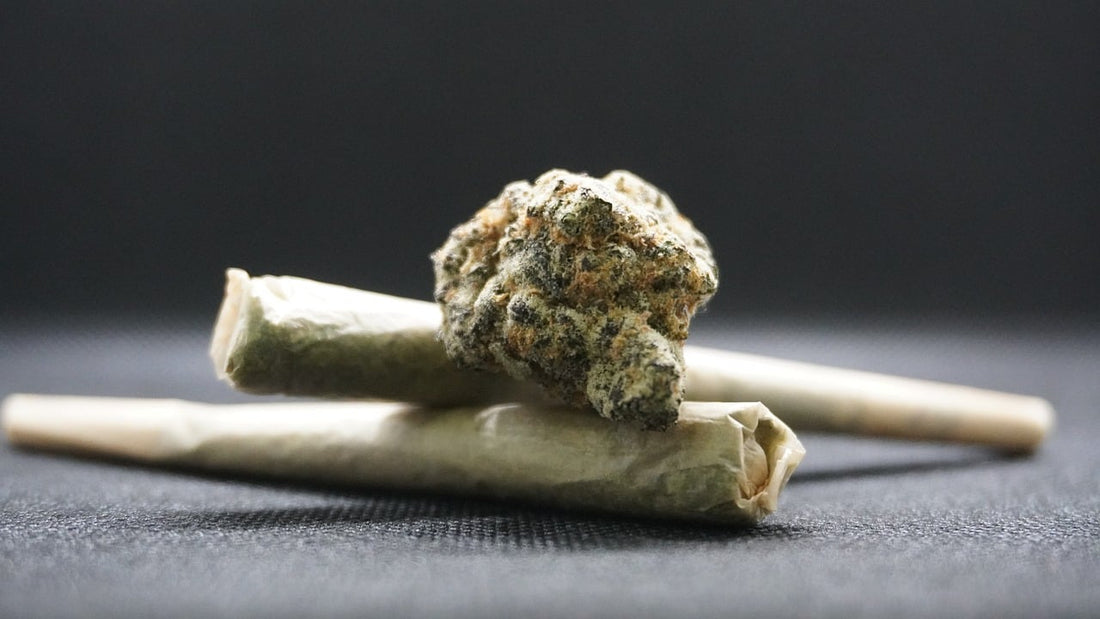
Marijuana Use and Teenage Mental Health
Daniel PattersonMarijuana use is becoming more common among teenagers, especially with the increasing legalization and accessibility of the drug for recreational and medicinal purposes in many states. While some teens may see marijuana as harmless or even beneficial, research shows a strong link between marijuana use and mental health issues in teens. Marijuana is also known as a gateway drug that is believed to lead to the use of more dangerous or addictive drugs. Commonly cited gateway drugs include nicotine, alcohol, and marijuana, as these substances are often consumed first and may be associated with an increased risk of experimenting with other illicit or harder drugs. This gateway theory suggests that the progression from legal or less harmful drugs to more dangerous ones occur due to a combination of behavioral, social, and biological factors. Understanding the risks can help parents support their teens in making informed choices.
The Connection Between Marijuana Use and Mental Health
-
Increased Risk of Depression and Anxiety
Numerous studies have found that regular marijuana use during adolescence is linked to an increased risk of depression and anxiety. According to the National Institute on Drug Abuse (NIDA), teens who use marijuana regularly are 37% more likely to develop depressive symptoms by young adulthood compared to those who don’t use marijuana. Additionally, a study published in JAMA Psychiatry found that adolescent marijuana users had a significantly higher likelihood of experiencing anxiety and suicidal thoughts later in life.
One reason for this is that marijuana affects the brain's endocannabinoid system, which plays a key role in mood regulation. The teenage brain is still developing, and introducing substances like THC (the psychoactive component of marijuana) can disrupt this process, potentially leading to long-term emotional imbalances.
-
Risk of Psychosis and Schizophrenia
Research has shown that marijuana use in adolescence is associated with a higher risk of developing psychotic disorders, such as schizophrenia. A large-scale review published in The Lancet Psychiatry concluded that teens who use marijuana daily are four times more likely to develop psychosis compared to non-users. This risk is even higher for individuals who have a family history of mental illness.
According to the National Institutes of Health (NIH), THC can interfere with normal brain functions, including those related to perception and thinking, which may trigger psychotic symptoms like paranoia, hallucinations, and delusions in some teens.
-
Impact on Cognitive Function and School Performance
Marijuana use also negatively affects cognitive development, particularly memory, attention, and learning. A longitudinal study by The American Academy of Pediatrics (AAP) found that teens who use marijuana regularly tend to have lower academic performance, with an average decline of 8 IQ points by adulthood compared to those who don’t use the drug.
These cognitive issues often translate into poorer school performance and lower levels of educational attainment. The Substance Abuse and Mental Health Services Administration (SAMHSA) has also reported that teens who use marijuana are more likely to skip school and have lower grades, which can impact their long-term academic and career outcomes.
Why Teens Are More Vulnerable
Teens are more vulnerable to the mental health risks of marijuana because their brains are still developing, particularly the prefrontal cortex, which is responsible for decision-making, impulse control, and emotional regulation. According to NIDA, the adolescent brain doesn’t fully mature until the mid-20s, making early marijuana use more likely to disrupt these critical developmental processes.
What Parents Can Do
-
Open the Conversation:
Many teens believe marijuana is harmless because of its increasing legalization. Have an open and honest conversation about the risks, focusing on how it can affect their mental health and brain development. -
Provide Data:
Teens may be more receptive to evidence-based information. Share statistics and facts, like the increased risks of depression, anxiety, and psychosis. Explain how THC affects their developing brains, visuals and graphs are helpful for teens. -
Offer Support:
If your teen is already using marijuana, consider seeking professional help. Behavioral therapy and family counseling have been proven effective in reducing substance use and improving mental health.
Conclusion
While marijuana use may seem like a growing norm among teens, it’s important to recognize the significant mental health risks it poses. By understanding the connection between marijuana and mental health, parents can have more informed discussions with their teens and guide them toward making healthier choices.
References:
- National Institute on Drug Abuse. (2021). "Marijuana and Teens: Risks and Consequences."
- JAMA Psychiatry. (2019). "Association of Adolescent Marijuana Use with Adult Mental Health Outcomes."
- The Lancet Psychiatry. (2015). "Marijuana Use and Risk of Psychosis."
- American Academy of Pediatrics. (2020). "The Impact of Marijuana on Teenage Cognitive Development."
- Substance Abuse and Mental Health Services Administration. (2021). "Effects of Marijuana on Teen Brain Development."











